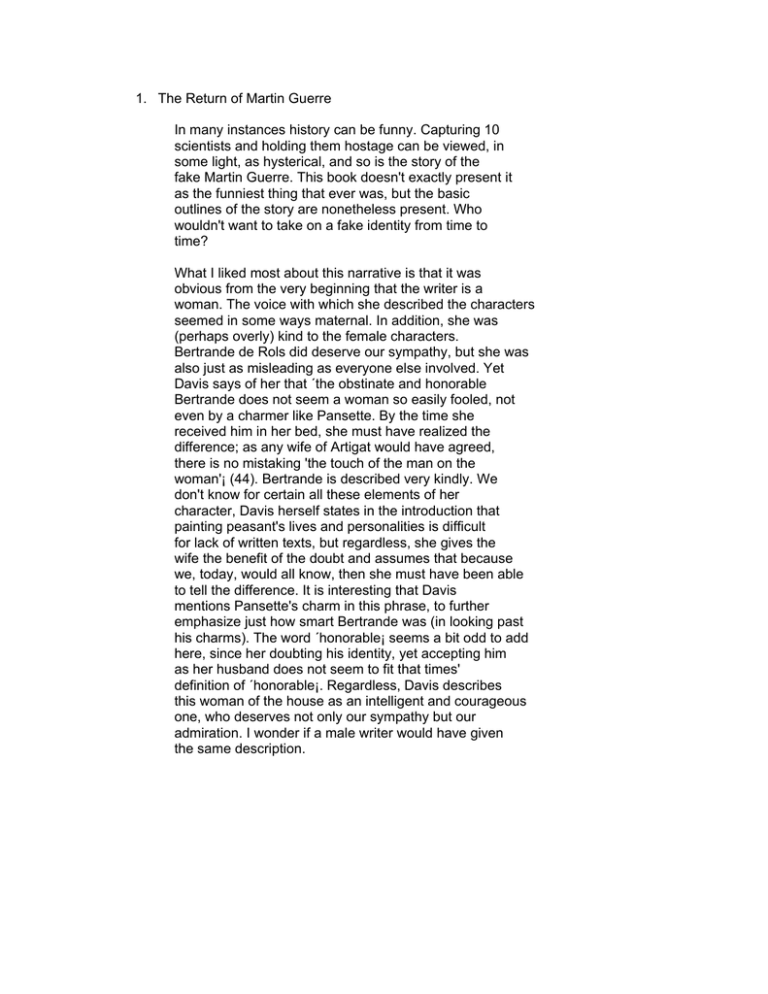1. The Return of Martin Guerre
advertisement

1. The Return of Martin Guerre In many instances history can be funny. Capturing 10 scientists and holding them hostage can be viewed, in some light, as hysterical, and so is the story of the fake Martin Guerre. This book doesn't exactly present it as the funniest thing that ever was, but the basic outlines of the story are nonetheless present. Who wouldn't want to take on a fake identity from time to time? What I liked most about this narrative is that it was obvious from the very beginning that the writer is a woman. The voice with which she described the characters seemed in some ways maternal. In addition, she was (perhaps overly) kind to the female characters. Bertrande de Rols did deserve our sympathy, but she was also just as misleading as everyone else involved. Yet Davis says of her that ´the obstinate and honorable Bertrande does not seem a woman so easily fooled, not even by a charmer like Pansette. By the time she received him in her bed, she must have realized the difference; as any wife of Artigat would have agreed, there is no mistaking 'the touch of the man on the woman'¡ (44). Bertrande is described very kindly. We don't know for certain all these elements of her character, Davis herself states in the introduction that painting peasant's lives and personalities is difficult for lack of written texts, but regardless, she gives the wife the benefit of the doubt and assumes that because we, today, would all know, then she must have been able to tell the difference. It is interesting that Davis mentions Pansette's charm in this phrase, to further emphasize just how smart Bertrande was (in looking past his charms). The word ´honorable¡ seems a bit odd to add here, since her doubting his identity, yet accepting him as her husband does not seem to fit that times' definition of ´honorable¡. Regardless, Davis describes this woman of the house as an intelligent and courageous one, who deserves not only our sympathy but our admiration. I wonder if a male writer would have given the same description.





